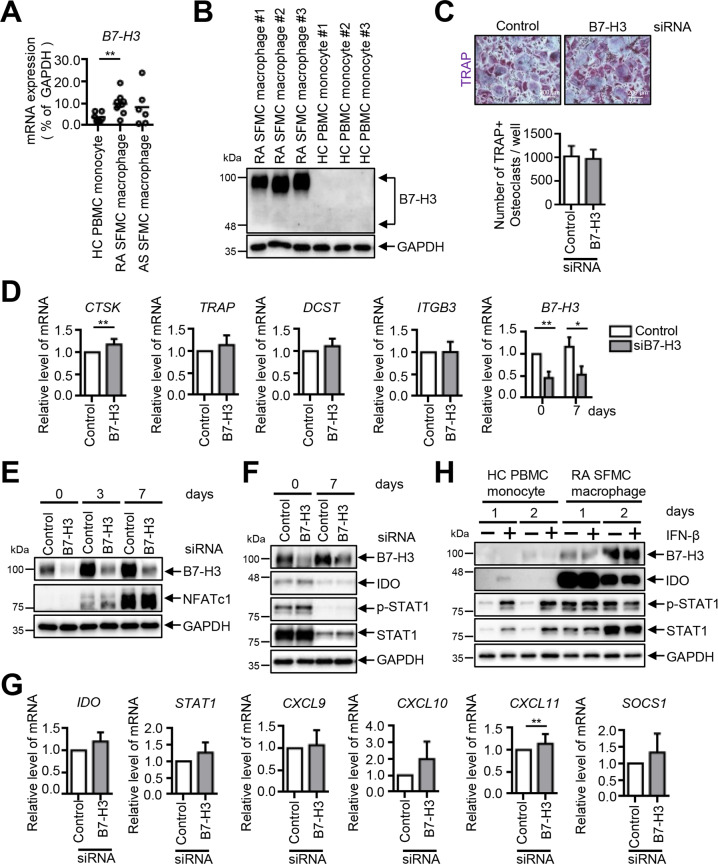Fig. 8. B7–H3 deficiency does not affect osteoclast differentiation in RA synovial-fluid macrophages.
A The expression of B7–H3 mRNA was analyzed using RT-qPCR on human HC PBMCs and RA and AS synovial fluid macrophages. Monocytes were purified from PBMCs (n = 7), and macrophages were derived from RA synovial-fluid mononuclear cells (n = 9) and AS synovial-fluid mononuclear cells (n = 6). The results are shown as mean ± S.E.M. B The expression of B7–H3 protein between HC PBMCs and RA synovial-fluid macrophages (n = 3) was assessed by Western blot. C M-CSF (40 ng/ml) was added to RA synovial-fluid macrophages for three days. OCPs that were transiently transfected with B7–H3-specific siRNA or control siRNA (40 nM) were induced to differentiate using M-CSF (40 ng/ml) and RANKL (80 ng/ml) for seven days. TRAP staining was performed and the number of TRAP-positive multinucleated cells per well were counted as osteoclasts (scale bar, 200 μm). D The expression of the mature osteoclast markers, CTSK, TRAP, DC-STAMP, and ITGB3, and B7–H3, was analyzed by RT-qPCR. E, F The expression of B7–H3, NFATc1, IDO, phospho-STAT1 (PY701), and STAT1 protein was evaluated using Western blot. G The expression of IFN-inducible genes was analyzed using RT-qPCR at day 0. H HC PBMCs and RA synovial-fluid macrophages were treated with recombinant IFN-β (1 ng/ml) for one or two days. Whole-cell lysates were immunoblotted with B7–H3, IDO, phospho-STAT1 (PY701), and STAT1 antibodies. (A, D, G) The mRNA levels were normalized relative to GAPDH expression.

